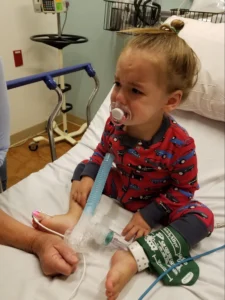Early Planning For Physician Assistant (PA) School: Building A Strong Application

Portrait of female healthcare worker in hospital hallway with medical report. Caucasian woman doctor holding clipboard and looking at camera.
Physician assistants play a crucial role in the healthcare industry. They work alongside doctors, nurses, and other medical professionals, diagnosing illnesses, developing treatment plans, and prescribing medications.
Preparing to pursue a career as a Physician Assistant (PA) requires careful planning and dedication. It’s challenging yet rewarding, necessitating a solid academic foundation, relevant healthcare experience, and a well-rounded application.
Understanding the prerequisites and developing a strategy early can significantly enhance your chances of success. In this article, you’ll learn how to build a strong application so you can make your PA dreams come true. Read on to learn more.
Identifying The Prerequisites For PA Programs
To become a PA student, you’ll need a solid educational foundation. Most PA programs require applicants to have completed a bachelor’s degree, often in a science-related field. This is where your focus on physician assistant majors becomes paramount.
For instance, biology, chemistry, and anatomy aren’t just prerequisites but key pillars that’ll support your future professional practice. Additionally, PA programs typically look for candidates who have amassed healthcare experience through employment or volunteering.
Ideally, this experience should be patient-centered, providing practical exposure to the medical field. Balancing these academic and experiential requirements is essential in positioning yourself as a well-rounded and capable candidate for any PA program.
Gaining Relevant Healthcare Experience
Gaining relevant healthcare experience is a pivotal step in your journey as an aspiring PA. This experience isn’t just a prerequisite for PA school but a foundation for your future career.
In your pursuit of becoming a well-rounded healthcare professional, immersing yourself in environments where healthcare is delivered is crucial. It allows you to understand the practical aspects of patient care and the dynamics of healthcare settings.
Whether you’re shadowing a PA or volunteering in a hospital, each opportunity offers unique insights into patient care and healthcare systems. These experiences will not only strengthen your application but also equip you with the skills necessary for a successful healthcare career.
Preparing For The Graduate Record Examination (GRE)
Graduate Record Examination or GRE assesses your quantitative reasoning, verbal reasoning, and analytical writing. It often serves as a critical measure for admissions committees.
Begin by setting a realistic study schedule to allow ample time to familiarize yourself with the exam format and question types. You can also utilize official GRE preparation materials and practice tests to gauge your strengths and areas for improvement.
It’s also best to focus on honing your problem-solving strategies and time management skills, as these are crucial for success on test day. Additionally, consider joining study groups or seeking a tutor if you need more structured guidance.
Remember, consistent practice and a strategic approach will build your confidence and competence, greatly enhancing your performance on the GRE.
Creating Letters Of Recommendation
Letters of recommendation should come from individuals who know you well and can vouch for your abilities and character. Start by identifying mentors or supervisors who have witnessed your professional growth and dedication. It can also help to choose individuals who can provide diverse perspectives on your skills, such as a professor for academic prowess and a healthcare professional for clinical competencies.
When requesting letters, give them an overview of your achievements to align their recommendations with your application story. Moreover, approach them early, providing ample time to craft thoughtful recommendations.
Understanding The Application Process
When navigating the application process, your attention to detail is paramount. You’ll primarily engage with the Central Application Service for Physician Assistants (CASPA), the standardized application platform for most PA programs.
It’s essential to familiarize yourself with the CASPA, including the varying requirements and deadlines set by different PA schools. Taking a proactive approach, start by collecting the necessary documents, such as transcripts, letters of recommendation, and your personal statement, well in advance. By doing so, you can ensure a comprehensive and well-prepared application submission and minimize stress.
Preparing For Interviews
Preparing for interviews is equally essential. They’re an opportunity to showcase your personal qualities and professional readiness.
To help you prepare, familiarize yourself with common interview questions specific to PA programs. It’s also ideal to focus on articulating your experiences, motivations, and understanding of the PA’s role in healthcare. And as you practice delivering your responses, aim for a confident yet conversational tone.
Above all, be genuine and let your passion for the profession shine through. Your sincerity and preparedness will speak volumes about your suitability for a career as a PA.
Final Thoughts
Becoming a PA requires dedication, hard work, and strategic planning. By understanding the requirements, gaining relevant experience, and crafting a well-rounded application, you’ll be well-prepared to embark on this fulfilling career.
Remember, your journey to PA school isn’t just about meeting criteria. It’s about shaping yourself into a competent and compassionate healthcare professional.
Also Read – Destinies of The Soul Dr Ludovic Summary








